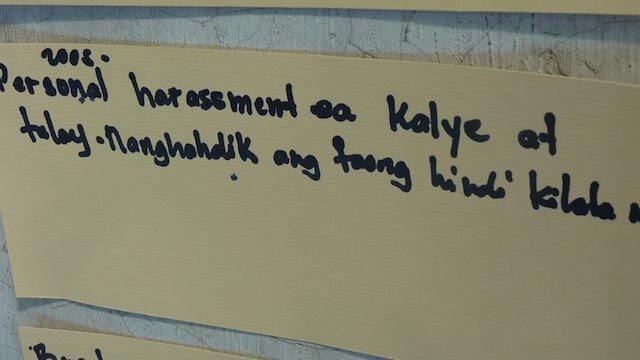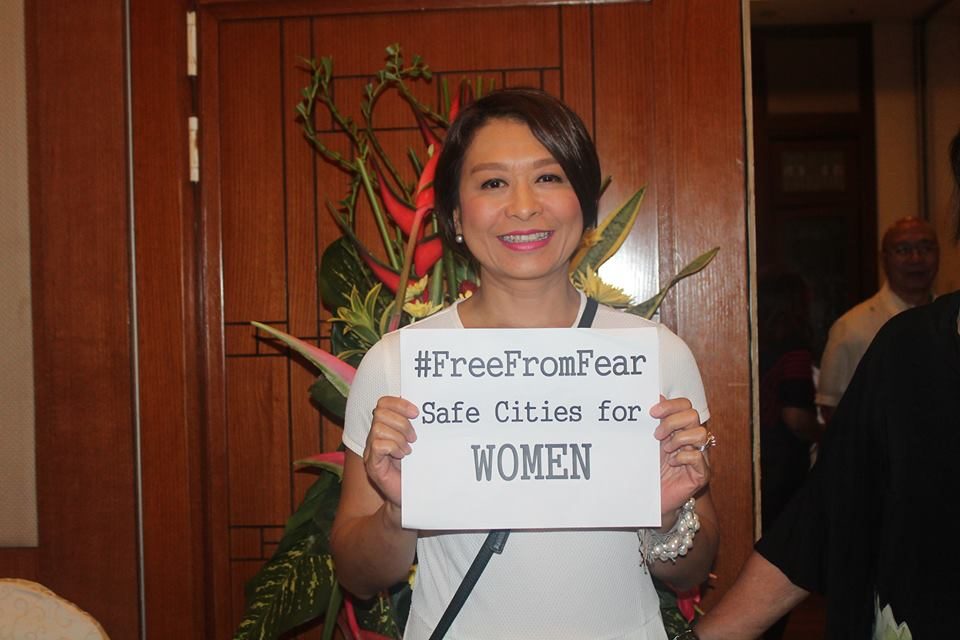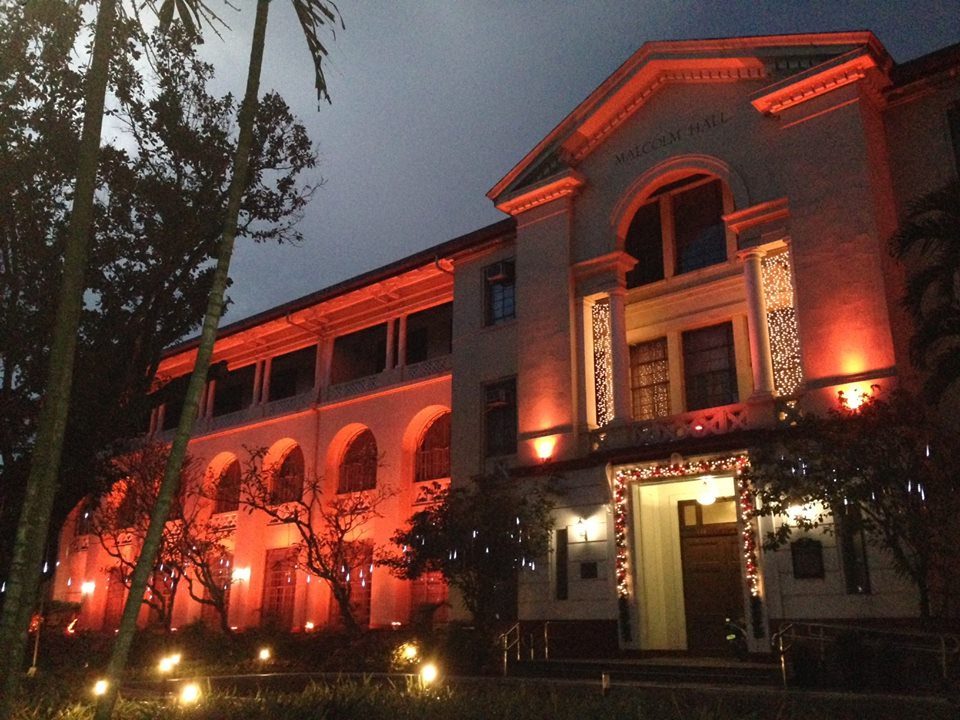SUMMARY
This is AI generated summarization, which may have errors. For context, always refer to the full article.

MANILA, Philippines – Chel, 21, was in a café when a man approached her and asked if she was married. A glare and the “boyfriend card” were not enough for him to leave her alone.
“It was then that I ran for my life,” she said.
Women are subjected to various acts of sexual harassment, limiting their freedom to exercise their rights to mobility, education, and work. Issues of sexual violence against women are also often neglected. (READ: ‘Hi, sexy!’ is not a compliment)
Most cases occur in underpasses, public transportation terminals, and stores. They also go unreported. Gigile, 38, never told anyone of her experience: “Hindi ko sinabi sa parents ko. Hindi ko sinabi kahit kanino, tinago ko ‘yun.”
(I never told my parents. I never told anyone – I hid it.)
The United Nations Entity for Gender Equality and the Empowerment of Women (UN Women) and the local government of Quezon City want to change all that. The two worked together to implement an 18-day campaign to stop street harassment and sexual violence against women in public places.
Metro Manila is also joining 23 other cities in the Safe Cities Global Initiative (SCGI) advocacy with the theme “How safe are women in our city streets?” The 18-day project called “Safe Cities Metro Manila Program” started on November 25 and will run until December 12.

#FreeFromFear
The #FreeFromFear social media campaign is part of the program that aims to resolve the problem of women experiencing street harassment.
Through the campaign, women share their experiences to raise awareness and join calls for the end of street harassment.
The incidents are very common in crowded spaces like public vehicles where people are sitting or standing very close to each other.
Many of the women said they feel disgusted when men disrespect them, but there were also cases where they accepted it as normal. “Hindi kasi mapipigilan. Part na ‘yan ng character ng lalaki, ganun. Kasi lalaki sila eh,” said Lav, 20.
(Street harassment can’t be stopped. It’s part of a man’s character. They’re being men.)

Violence against women
Violence against women (VAW) is a persistent problem in the Philippines. Although the country is ranked 9th in the 2014 Gender Gap Index, the Philippine Commission on Women (PCW) said the number of cases in 2013 was the highest since 1997.
There were also 196 reported cases of street harassment in 2013 compared to 41 in 2012. Street harassment falls under VAW as an example of psychological violence.
One factor worsening the issue is victim blaming. Rape, they said, has even been blamed on women accused of being flirtatious.
The UN Women Safe Cities Metro Manila Programme will have a culminating event on December 12 – an exhibit featuring images depicting women’s fear when they are outside. It will be held at the Quezon City Hall’s main lobby and will run from 5:30 pm to 8 pm. – with a report from Bea Orante/Rappler.com
For more stories of street harassment and information about the campaign, visit the UN Women Safe Cities Metro Manila Programme’s Facebook page.
Add a comment
How does this make you feel?





There are no comments yet. Add your comment to start the conversation.